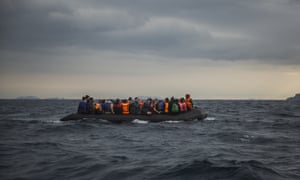
Turkey now hosts the world’s largest community of Syrians displaced by the ongoing conflict in their country. According to United Nations estimates, Turkey’s Syrian refugee population was more than 1.7 million as of mid-March 2015, and the large unregistered refugee population may mean the true figure is even larger. Turkish reception policies at the outset were predicated on the assumption that the conflict would come to a swift conclusion, allowing the displaced Syrians to return home, but as conditions continue to deteriorate in Syria and the conflict stretches into its fifth year, it has become clear that a shift in policy to encompass longer-term solutions is needed.
The Syrian refugee crisis arose as the Turkish government was in the midst of overhauling its immigration system to meet international—and, particularly, European Union—standards. The implementation of these reforms has limited Turkish authorities' capacity to manage the Syrian inflows, and as a result, management of the crisis was left largely in the hands of national organizations working on the ground, in camps, without larger policy guidance. Meanwhile, formal immigration channels, including recognition of refugee status, remain restricted to Europeans, while non-Europeans receive temporary protection status and are expected at some point to resettle in a third country.

